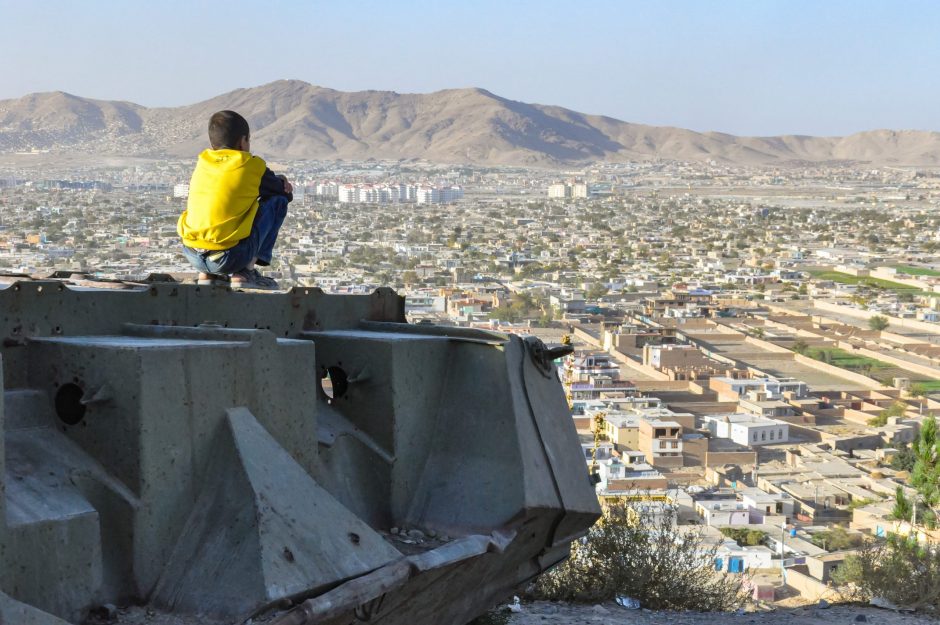After Kabul
The events unfolding in Afghanistan have captured the attention of the world, and rightly so. While nearly every national security analyst and political reporter is clamouring to understand what lead to such a haphazard American withdrawal, it’s important to cast our gaze to the future and assess some potential geopolitical implications.
China, India & Pakistan
Eyes are on China in the coming months after its foreign ministry expressed its readiness to develop “good-neighborly, friendly and cooperative relations” with the Taliban shortly after they seized Kabul. Unilaterally, China is undoubtedly exploring ways to tap into the extraordinary mineral deposits, namely copper, iron, lithium and other rare earth metals that are estimated to be worth around USD$1 – $3 trillion. There’s much work to be done to guarantee the security of Chinese workers in Afghanistan, but expect Belt and Road negotiations to dominate diplomacy between the two neighbours over the coming years. Similar to the growing concerns worldwide around materials sourced from Xinjiang, these metals are likely to be used in a plethora of consumer electronics and vehicles, and producers would be wise to consider the geopolitical risk of Taliban-controlled Afghanistan being a key part of their supply chain; keep an eye on Huawei and Tesla’s Shanghai Gigafactory.
Widening China’s Afghanistan scope here, one must look south. The already troubled regions of Kashmir and Ladakh, where India has had ongoing skirmishes with Pakistan and China respectively, lie squarely in the middle of where the three regional powers intersect with each other and Afghanistan. With U.S. military basing now non-existent in nearby Kabul, Pakistan and China may turn up the heat in these areas even if only to re-emphasise the psychological toll of encirclement on New Delhi. The close-by China-Pakistan Economic Corridor is the lynchpin of this encirclement, and may become the main artery linking another regional player emboldened by America’s withdrawal: Iran. While an enormous air space above Afghanistan is suddenly void of regular U.S., presence, sea lanes are likely to remain the preferred supply routes from East Asia to the Middle East. This is certainly a longer-term issue, but a heightened awareness of China-Iran relations in the coming years will be important, as will be the manoeuvring of the QUAD to support an increasingly claustrophobic India.
NATO & Russia
Russia may see new opportunities in Europe. NATO members are undoubtedly going through the motions and critically assessing their contribution to such a spectacular failure of U.S. policy. Eastern Ukraine remains the hotspot for conventional conflict, but Moscow’s revisionist ambitions extend to the Arctic seas above Norway and into the cyber domain. The Biden administration has much work to do to reassure allies of the integrity of its strategies and commitments throughout Europe.
Counterterrorism
The challenge of counterterrorism is a poignant one in the wake of U.S. withdrawal. Washington has a challenging balancing act ahead as it may look to bolster presence in Israel, Saudi Arabia and Qatar to keep monitoring international terrorist movements and supply lines, but the ripples of these actions will be felt in the minds of the Iranian leadership. Although the War on Terror has been a spectacular failure, the U.S. cannot neglect the issue of international terrorism and extremism, and its diplomats will be busy across the Middle East, Turkey and Europe discussing contingencies for support of counterterrorism operations.
On a socio-technological note, the online virality of the Taliban’s takeover of Kabul may turn out to be an Open Source Intelligence (OSINT) goldmine in the future. The raw amount of photo and video emerging from the country certainly has the potential to assist counterterrorism operations in the years to come. The intelligence environment is evolving as private companies swarm in to fill niches and offer an alternative to the bureaucracy often surrounding government-lead intelligence gathering; keep an eye on companies such as BlackSky pointing their geospatial satellites and mass sensor networks towards Afghanistan more often.
New Zealand
To finish on a dynamic closer to home, New Zealand is likely reflecting on its time in Afghanistan. Sending the C-130 Hercules to evacuate kiwis and our Afghan partners was a good decision, albeit one that was momentarily a non-starter. The existence of a precedent for such an operation no doubt eased the government’s decision making. However it’s necessary to consider when, where and for what cause we may have to do it again. Smaller states have obligations to larger allies when it comes to security guarantees, but Afghanistan has been a hard lesson in having more independent and agile foreign and defence policy avenues available in a smaller nations’ strategic toolkit.
The topics discussed above only begin to scratch the surface of potential geopolitical implications of the Taliban’s return to power. When possible, JC Ltd. will conduct further research, analysis and futures modelling on these issues, which will undoubtedly evolve and manifest in complex, unexpected ways.



